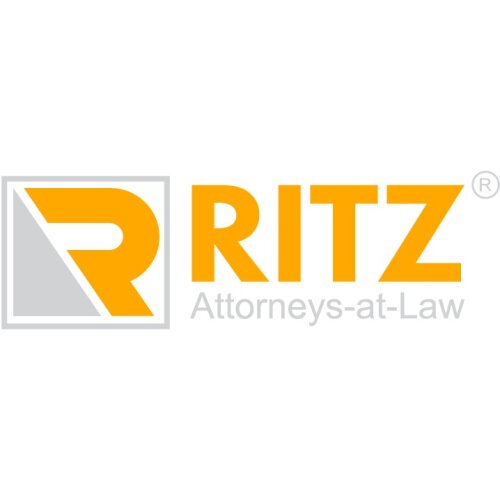Best Business Lawyers in Malawi
Share your needs with us, get contacted by law firms.
Free. Takes 2 min.
Or refine your search by selecting a city:
List of the best lawyers in Malawi
About Business Law in Malawi
Business law in Malawi is a critical facet of the country's legal system, serving as the framework that governs business operations and economic transactions. The Malawian business environment is regulated by various legal instruments that promote fair business practices, protect investments, and encourage economic growth. The Companies Act, Partnership Act, and the Employment Act are among the key statutes that outline the legal parameters within which businesses must operate in Malawi. The judiciary, alongside regulatory bodies such as the Malawi Revenue Authority, oversees the implementation of these laws to ensure compliance and resolve disputes.
Why You May Need a Lawyer
Engaging a lawyer in business matters in Malawi may be necessary for a range of scenarios:
- Starting a business: Lawyers can help with business formation, registration, and compliance with local regulations.
- Drafting and reviewing contracts: Legal expertise is crucial in preparing legally binding agreements to safeguard interests.
- Dispute resolution: Lawyers can advise on and represent parties in resolving commercial disputes through negotiation, arbitration, or litigation.
- Compliance: Ensuring adherence to tax laws, employment regulations, and health and safety standards can be complex and require legal oversight.
- Mergers and acquisitions: Legal advice is necessary to navigate the complexities of business mergers or acquisitions, ensuring due diligence and regulatory compliance.
- Intellectual property: Protecting intellectual property rights such as trademarks and patents often requires specialized legal input.
Local Laws Overview
Malawi's business legal framework encompasses several key legislations:
- The Companies Act: Governs the incorporation, management, and dissolution of companies.
- The Partnerships Act: Provides for the formation and regulation of partnerships.
- The Employment Act: Regulates employment relationships, including contracts, wages, and workplace rights.
- The Taxation Act: Guides tax obligations for businesses, ensuring compliance with revenue laws.
- The Competition and Fair Trading Act: Ensures fair competition and prevents monopolistic practices.
- The Land Act: Relevant for businesses involved in leasing, purchasing, or developing land.
Frequently Asked Questions
What is required to register a business in Malawi?
A business must be registered with the Registrar of Companies and complete necessary filings, including a Memorandum and Articles of Association for companies.
Are there restrictions on foreign business ownership?
Yes, certain sectors may have restrictions on foreign ownership to protect local interests, but these vary depending on the industry.
What types of business structures are available?
Common structures include sole proprietorships, partnerships, limited liability companies (LLCs), and corporations.
How are business disputes resolved in Malawi?
Disputes can be resolved through negotiation, mediation, arbitration, or litigation in courts, depending on the nature and complexity of the issue.
What are the tax obligations for businesses?
Businesses must comply with corporate income tax, VAT, and potentially other levies depending on the sector and location.
How can I protect my intellectual property in Malawi?
Intellectual property rights can be protected through registration with relevant authorities, such as patents or trademarks.
What legal requirements exist for hiring employees?
Employer obligations include drafting employment contracts, adhering to minimum wage laws, and ensuring workplace safety.
Are contracts enforceable in Malawi?
Yes, provided they meet legal requirements, contracts are enforceable and disputes related to them can be resolved judicially.
How can I obtain a business license?
Licensing requirements vary by industry and location; it's crucial to consult the specific regulatory body governing the business area.
What are the consequences of non-compliance with business laws?
Non-compliance can result in fines, legal penalties, and even closure of the business, depending on the severity of the breach.
Additional Resources
For more information and assistance regarding business law in Malawi, you can consult:
- Malawi Investment and Trade Centre (MITC)
- Malawi Revenue Authority (MRA)
- The Malawi Law Society
- Local chambers of commerce and industry associations
Next Steps
If you need legal assistance in business matters, consider the following steps:
- Identify the specific legal need or issue you are facing.
- Research and contact a qualified business lawyer experienced in Malawian law.
- Prepare relevant documents and information to discuss with your lawyer during consultations.
- Explore alternative dispute resolution mechanisms if applicable before proceeding to litigation.
- Review and comply with any advice or instructions provided by your legal counsel to ensure full compliance with the law.
Lawzana helps you find the best lawyers and law firms in Malawi through a curated and pre-screened list of qualified legal professionals. Our platform offers rankings and detailed profiles of attorneys and law firms, allowing you to compare based on practice areas, including Business, experience, and client feedback.
Each profile includes a description of the firm's areas of practice, client reviews, team members and partners, year of establishment, spoken languages, office locations, contact information, social media presence, and any published articles or resources. Most firms on our platform speak English and are experienced in both local and international legal matters.
Get a quote from top-rated law firms in Malawi — quickly, securely, and without unnecessary hassle.
Disclaimer:
The information provided on this page is for general informational purposes only and does not constitute legal advice. While we strive to ensure the accuracy and relevance of the content, legal information may change over time, and interpretations of the law can vary. You should always consult with a qualified legal professional for advice specific to your situation.
We disclaim all liability for actions taken or not taken based on the content of this page. If you believe any information is incorrect or outdated, please contact us, and we will review and update it where appropriate.
Browse business law firms by service in Malawi
Malawi Attorneys in related practice areas.
Browse business law firms by city in Malawi
Refine your search by selecting a city.
















